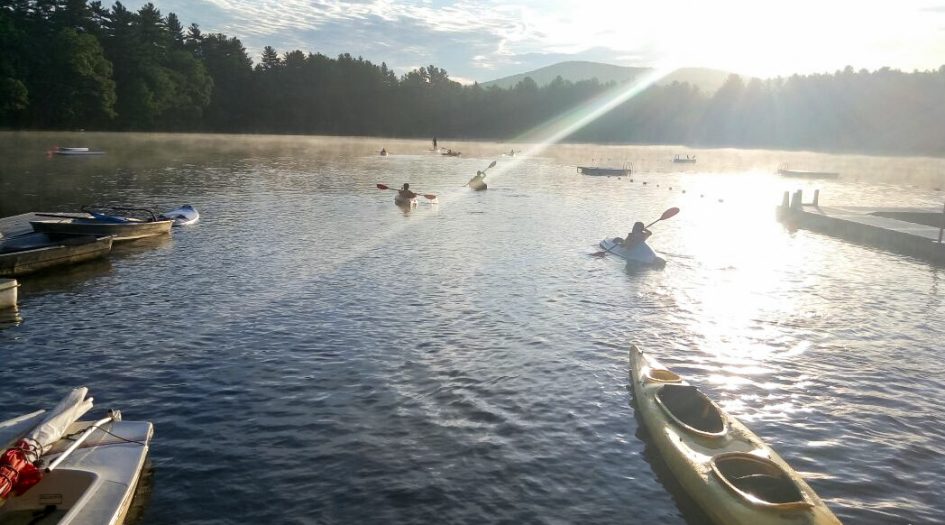D’var Torah: Mas’ei – Traveling Music by Rabbi Gordon Tucker

Two Parashiyot are read from the Torah this week, bringing us to the end of the Book of Bemidbar (Numbers). The second of these two (Mas’ei – chapters 33-36) begins with what could seem an exceedingly dry list of the 42 places at which the Israelites camped during the 40 years stretching from the Exodus to the banks of the Jordan. When it is read in the Torah, it is – in many traditions – read with what might be called “traveling music”; that is, the normal “trop” is replaced for these verses by the melody that is used for the Song at the crossing of the Sea of Reeds and for the transition from one book of the Torah to another (“Hazak Hazak”). No doubt this is in part to guard against the boredom that might ensue from listening to more than 40 short sentences, all with the same exact structure and trop, with only the names of the places changing.
The Hasidic world had a different way of bringing this otherwise dry section to life. In keeping with a standard method of Hasidic interpretation, this apparent description of the comings and goings of a particular generation of our ancestors in the deep past was taken to be actually about a much greater and more universal story. They understood these place names (many of which we had not previously encountered in the Torah) to be symbolic of the travels and travails of character and spirit that each of us must traverse in our lives. They said it was about the inner life of every Jew; we could well say that it is about the inner life of every human. Here’s a sample of how their “humanistic exegesis” worked:
The Israelites are said to have passed through places named “Mitkah”, “Har Shefer”, “Makheilot” and “Dofkah”. Those names were taken to be from the Hebrew roots meaning “sweetness,” “beauty,” “song” and “[the quickened] pulse [of passion].” The next step was to assert that our ancestors’ journey was taught to us as a model of what each of us must navigate. We have to learn to find the sweetness in ourselves and in others, and to use that in a way that moves us and the world to higher planes (“promised lands”). Similarly with the beauty of the world and our souls, with our capacity to sing, and with the passions we have to learn to channel. Many others of the geographic markers in the text are treated in the same way (including even harsher ones like “anger” (the place is called “Evronah”)), urging us to use all of our powers and instincts for good. Suddenly, the tedious travelogue in Mas’ei comes alive as a lesson in attentiveness to the potentials we have as individuals and as members of a community.
In the special community that is Ramah, one cannot but think of how this reading captures all that we do here with ourselves, with our colleagues, and above all with our campers. Each summer session here is a travelogue of the spirit, bringing the best out of each individual, teaching them by example how to channel our inner forces into compassion, understanding, and commitment. It is a symphony of traveling music, and it is an uncommon privilege to be part of that voyage toward places of promise and dreams.
Rabbi Gordon Tucker is the Senior Rabbi Emeritus of Temple Israel Center of White Plains, NY. He has had a long association with Camp Ramah in New England and now serves on CRNE’s Limud (learning) staff.